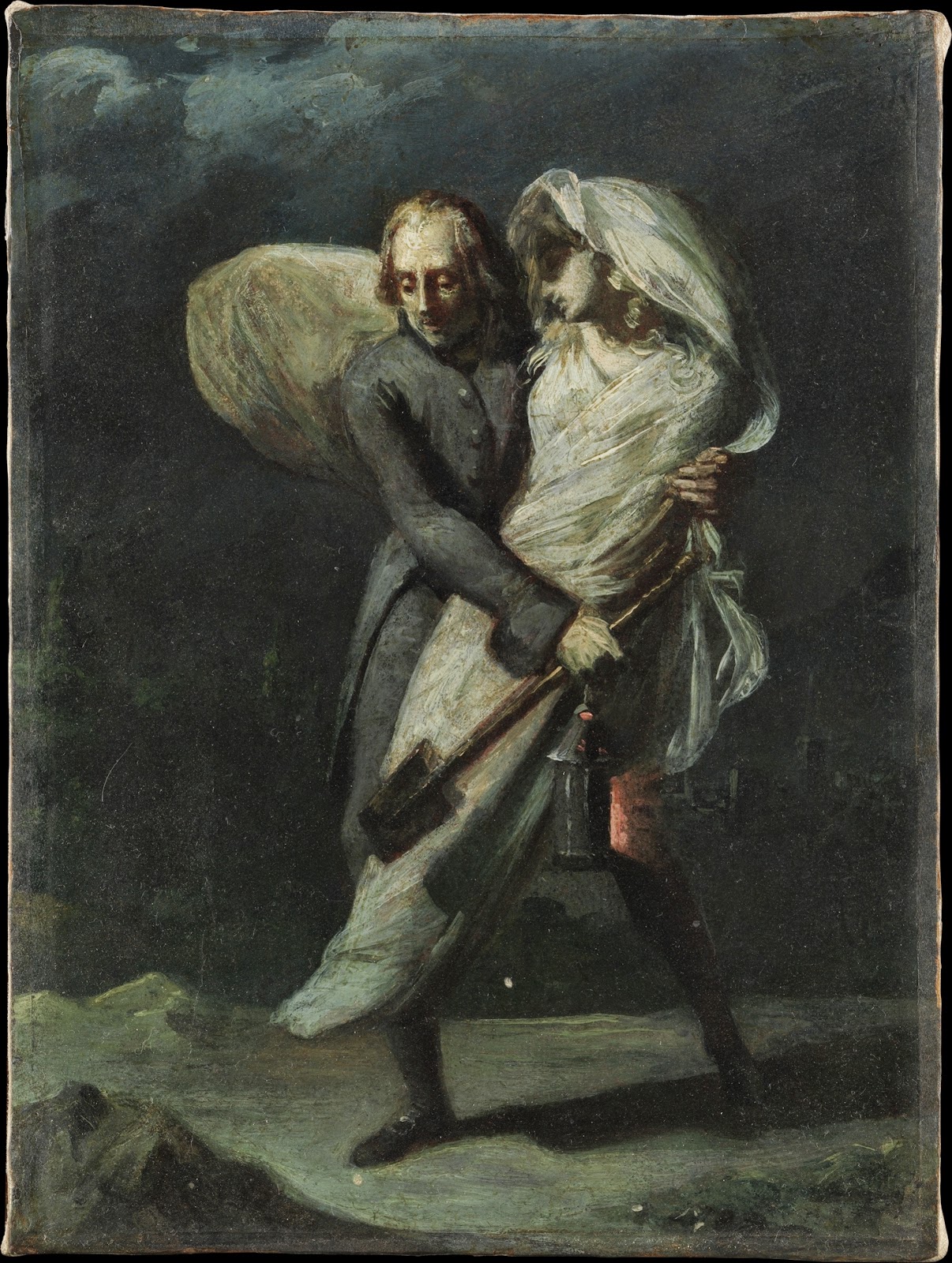Pierre Antoine Augustin Vafflard (1777–1837)
Study for "Young and His Daughter"
c 1804
Oil on paper, laid down on canvas
27.3 x 20.6 cm
The Metropolitan Museum, New York
Edward Young (1683-1765) was an English Protestant clergyman and writer
At the height of his career and success in the Anglican Church, he married. But happiness did not last.
His stepdaughter, her husband and finally his wife all died between 1736 and 1740.
The comparison with Job in the Old Testament is unmistakable
His major and most popular work was a nine part poem in blank verse entitled The Complaint, or Night Thoughts on Life, Death, and Immortality (1742-45)
It consists of a number of dialogues with Lorenzo, a dissipated youth, and meditates on the deaths of Lucia, Narcissa and Philander, whom, according to most interpretations, are loosely based on Young's wife, his stepdaughter and her husband.
In 1736 Young was traveling through France with his family when his stepdaughter, Elizabeth Temple, died at Lyons.
Forbidden to inter her remains in the city’s Catholic cemetery because of their religion, he was obliged to seek out the Protestant burial ground in the middle of the night and bury her. This is the subject of the painting.
It was a very popular work in the French Revolution
The Third Canto entitled Narcissa narrates the macabre story of what happened in Lyon
"And on a foreign shore, where strangers wept!
155Strangers to thee, and, more surprising still,Strangers to kindness, wept; their eyes let fallInhuman tears; strange tears, that trickled downFrom marble hearts! obdurate tenderness!A tenderness that call'd them more severe,
160In spite of Nature's soft persuasion steel'd.While Nature melted, Superstition raved:That mourn'd the dead; and this denied a grave.Their sighs incensed; sighs foreign to the will!Their will, the tiger-suck'd, out-raged the storm.
165For, O the cursed ungodliness of zeal!While sinful flesh relented, spirit nursedIn blind Infallibility's embrace,The sainted spirit petrified the breast;Denied the charity of dust to spread
170O'er dust! a charity their dogs enjoy.What could I do? what succour, what resource?With pious sacrilege a grave I stole;With impious piety that grave I wrong'd;Short in my duty; coward in my grief!
175More like her murderer than friend, I creptWith soft-suspended step, and, muffled deepIn midnight darkness, whisper'd my last sigh.I whisper'd what should echo through their realms;Nor writ her name, whose tomb should pierce the skies.
180Presumptuous fear! how durst I dread her foes,While Nature's loudest dictates I obey'd?(Pardon necessity, blest shade!) Of griefAnd indignation rival bursts I pour'd;Half execration mingled with my prayer;
185Kindled at man, while I his God adored;Sore grudged the savage land her sacred dust;Stamp'd the cursed soil; and with humanity(Denied Narcissa) wish'd them all a grave."
The German Bishops' Conference issued a decree in 2012 warning those who opted out of paying the country's "church tax" that they would no longer be entitled to the sacraments, to a religious burial or to play any part in parish life.


No comments:
Post a Comment